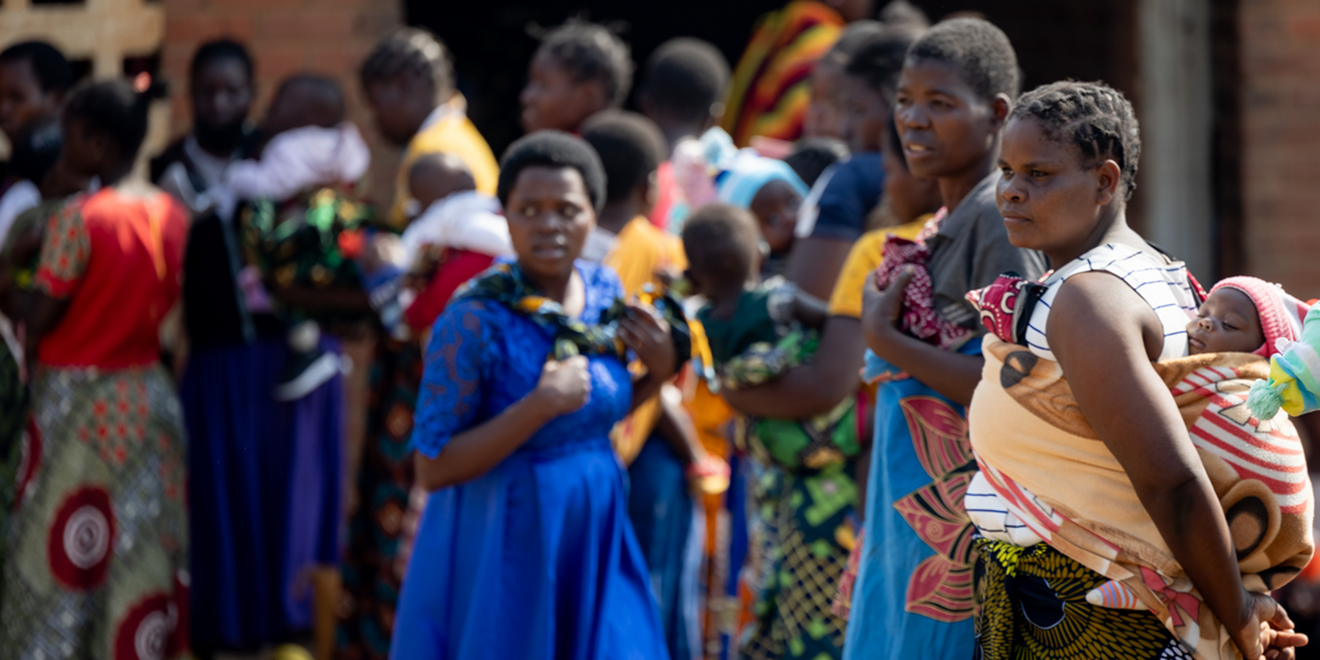GSK is developing a new vaccine designed to improve protection for children in endemic countries against the most severe form of malaria, P. falciparum.
The research will build on the success of first-generation vaccines by adding a new antigen – a molecule that stimulates an immune response.
The antigen will work at a different stage of the life cycle of the malaria parasite to first-generation vaccines, in the hope of improving protection.
“A child dies from malaria nearly every minute,” says Katie Ewer, the scientist leading the Second-Generation Malaria Vaccine Programme for GSK’s Global Health team.
“It's a huge burden carried by the most vulnerable children in sub-Saharan Africa, predominantly affecting children under the age of five. And so, with the development of our new vaccine, we're aiming to protect even more children than first-generation vaccine technology currently can.”
A life-threatening disease, malaria is spread to humans by some types of mosquito.
There are five Plasmodium parasite species that cause malaria in humans and two of these species – P. falciparum and P. vivax – pose the greatest threat. P. falciparum is the most severe malaria parasite and the most prevalent in Africa.
The lifecycle of malaria starts when a mosquito feeds on the blood of a person infected with malaria. When the mosquito bites another human, the multiplied parasites, now called sporozoites, enter the human skin and make their way to the liver, before going on to infect the blood.
First-generation vaccines target the sporozoite, or early stage of the life cycle of the malaria parasite, so scientists from GSK Global Health are designing and testing a new vaccine component to specifically target the later blood stage of the life cycle. If successful, the second-generation vaccine could potentially offer greater protection from the disease by targeting multi-stages in the lifecycle of malaria parasites for the first time.

“One of our aims on the second-generation programme is to reduce the number of doses and potentially the frequency of booster doses as well, which would make it more accessible and easier to implement in routine immunisation programmes,” Ewer adds.
“A Phase 2a clinical trial to evaluate dosing and scheduling of our first-generation malaria vaccine will commence in Rwanda in June.”
The news comes four decades after scientists at GSK, PATH and other partners developed the foundational technology for the world’s first malaria vaccine.
The rollout for those vaccines for the prevention of P. falciparum malaria in children began in endemic countries in January 2024, where, according to a recent report by the World Health Organisation, they are already demonstrating public health impact. In March 2025, Burundi became the tenth country to roll out the first-generation malaria vaccine for children in its national immunisation programme.
Dr. Kwaku Poku Asante is an epidemiologist and the Director of the Kintampo Health Research Centre, a Ghana Health Service institution and a leading centre for health research in Ghana and the African region. He was a principal investigator of the Malaria Vaccine Implementation Programme (MVIP) evaluation team (MVPE) in Ghana – one of the three endemic African countries where the pilot for RTS,S was co-ordinated by the WHO, reaching 2 million children.
“Today, the malaria vaccine is being rolled out among the population (in Ghana) and people have a lot of confidence that this vaccine has been studied among our population, by our researchers,” he says.
Pointing to a rigorous evaluation of MVIP conducted by the WHO, Dr. Asante says: “We're seeing a reduction in all-cause mortality, meaning that with the implementation of the vaccine, the number of deaths could be significantly reduced, and many children would live longer.”
Building upon the extensive efforts of the global health community over the past four decades, GSK’s second-generation malaria vaccine programme aims to apply the latest vaccines science to evolve and expand the global malaria “tool box” in support of elimination efforts.
“Vaccines add on to existing tools and some of these we have been using for many years, such as bed nets and seasonal malaria chemoprevention,” Dr Asante continues.
“But we know how vaccines work, we've seen how vaccines have reduced the burden of other diseases, some of them to eradication, and so with a more efficacious vaccine, I am very hopeful that mortality would reduce, and more children will survive.
“The earlier and the faster we develop second-generation vaccines, the better.”
He went on to note the importance of not losing capacity and infrastructure that has been built by organisations and partners at a local, regional and international level to make sure first-generation vaccines are accessible to those who need it most.
“It's a very exciting time to be a scientist in malaria,” Ewer concludes.
“I've been working on malaria vaccines for over 15 years now and in the last few years, we've seen a massive expansion, not just in research but in knowledge and our understanding of the malaria parasite, and that's really opened up a new horizon.”




